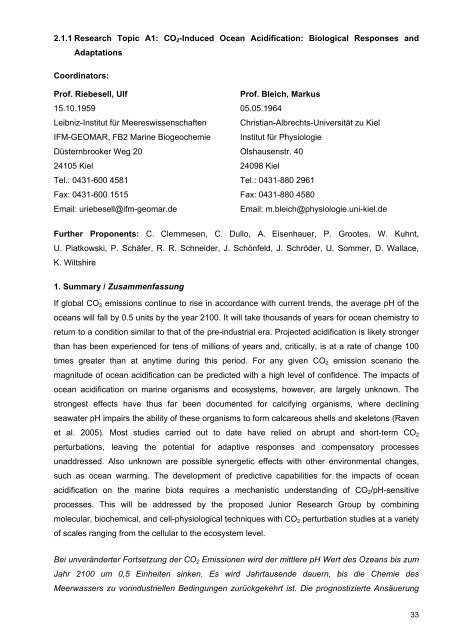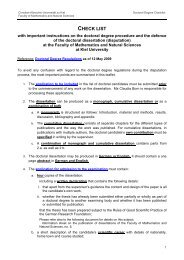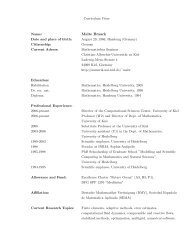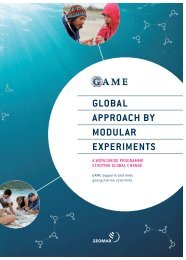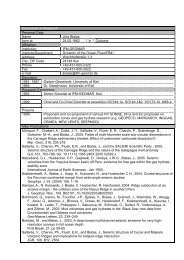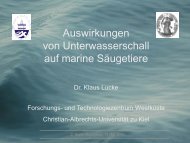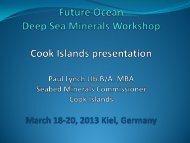Untitled - The Future Ocean
Untitled - The Future Ocean
Untitled - The Future Ocean
- No tags were found...
You also want an ePaper? Increase the reach of your titles
YUMPU automatically turns print PDFs into web optimized ePapers that Google loves.
2.1.1 Research Topic A1: CO 2 -Induced <strong>Ocean</strong> Acidification: Biological Responses andAdaptationsCoordinators:Prof. Riebesell, UlfProf. Bleich, Markus15.10.1959 05.05.1964Leibniz-Institut für Meereswissenschaften Christian-Albrechts-Universität zu KielIFM-GEOMAR, FB2 Marine Biogeochemie Institut für PhysiologieDüsternbrooker Weg 20Olshausenstr. 4024105 Kiel24098 KielTel.: 0431-600 4581Tel.: 0431-880 2961Fax: 0431-600 1515Fax: 0431-880 4580Email: uriebesell@ifm-geomar.deEmail: m.bleich@physiologie.uni-kiel.deFurther Proponents: C. Clemmesen, C. Dullo, A. Eisenhauer, P. Grootes, W. Kuhnt,U. Piatkowski, P. Schäfer, R. R. Schneider, J. Schönfeld, J. Schröder, U. Sommer, D. Wallace,K. Wiltshire1. Summary / ZusammenfassungIf global CO 2 emissions continue to rise in accordance with current trends, the average pH of theoceans will fall by 0.5 units by the year 2100. It will take thousands of years for ocean chemistry toreturn to a condition similar to that of the pre-industrial era. Projected acidification is likely strongerthan has been experienced for tens of millions of years and, critically, is at a rate of change 100times greater than at anytime during this period. For any given CO 2 emission scenario themagnitude of ocean acidification can be predicted with a high level of confidence. <strong>The</strong> impacts ofocean acidification on marine organisms and ecosystems, however, are largely unknown. <strong>The</strong>strongest effects have thus far been documented for calcifying organisms, where decliningseawater pH impairs the ability of these organisms to form calcareous shells and skeletons (Ravenet al. 2005). Most studies carried out to date have relied on abrupt and short-term CO 2perturbations, leaving the potential for adaptive responses and compensatory processesunaddressed. Also unknown are possible synergetic effects with other environmental changes,such as ocean warming. <strong>The</strong> development of predictive capabilities for the impacts of oceanacidification on the marine biota requires a mechanistic understanding of CO 2 /pH-sensitiveprocesses. This will be addressed by the proposed Junior Research Group by combiningmolecular, biochemical, and cell-physiological techniques with CO 2 perturbation studies at a varietyof scales ranging from the cellular to the ecosystem level.Bei unveränderter Fortsetzung der CO 2 Emissionen wird der mittlere pH Wert des Ozeans bis zumJahr 2100 um 0,5 Einheiten sinken. Es wird Jahrtausende dauern, bis die Chemie desMeerwassers zu vorindustriellen Bedingungen zurückgekehrt ist. Die prognostizierte Ansäuerung33


